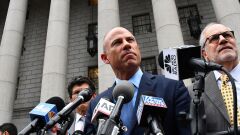Crime is nothing if not consistent. Cue the IRS Criminal Investigation division's top 10 cases for 2022, where tax evasion, Ponzi pyramids, COVID fraud and lavish lifestyles again headed the pack of scams.
The CI division's top 10 cases comprise the agency's most prominent and high-profile investigations of the past 12 months, demonstrating "that no one — not attorneys, not reality television stars, not law enforcement officers — is above the law," said IRS-CI chief Jim Lee in a statement.
Will they never learn? Apparently not, and here's what they all tried, from number 10 to the tip-top worst.









